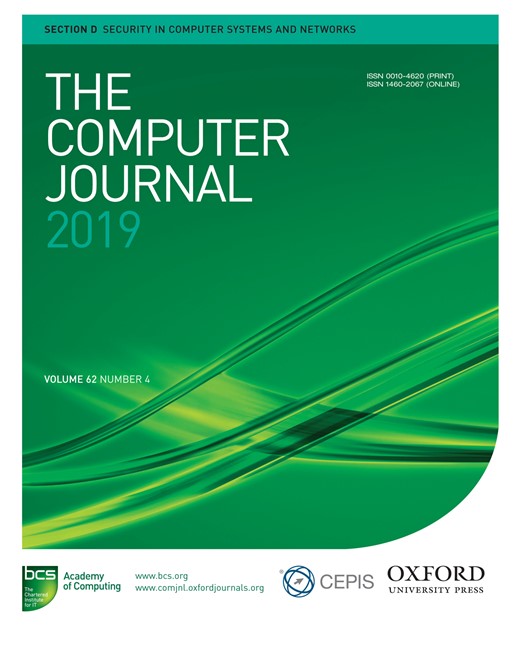-
Views
-
Cite
Cite
Keita Emura, Hayato Kimura, Toshihiro Ohigashi, Tatsuya Suzuki, Privacy-Preserving Aggregation of Time-Series Data with Public Verifiability from Simple Assumptions and Its Implementations, The Computer Journal, Volume 62, Issue 4, April 2019, Pages 614–630, https://doi.org/10.1093/comjnl/bxy135
Close - Share Icon Share
Abstract
Aggregator oblivious encryption was proposed by Shi et al. (NDSS 2011). In this method, an aggregator can compute an aggregated sum of data and is unable to learn anything else (aggregator obliviousness). Since the aggregator does not learn individual data that may reveal users’ habits and behaviors, several applications including privacy-preserving smart metering have been considered. In this paper, we propose an aggregator oblivious encryption scheme with public verifiability where the aggregator is required to generate a proof of an aggregated sum, and anyone can verify whether the aggregated sum has been correctly computed by the aggregator. Although Leontiadis et al. (CANS 2015) considered verifiability, their scheme requires an interactive complexity assumption to provide the unforgeability of the proof. Our scheme is proven to be unforgeable under a static and simple assumption (a variant of the Computational Diffie–Hellman assumption). Moreover, our scheme inherits the tightness of the reduction of the Benhamouda et al. scheme (ACM TISSEC 2016) for proving aggregator obliviousness. This tight reduction allows us to employ elliptic curves of a smaller order and leads to efficient implementation. Specifically, for 112-bit security, we can employ Barreto–Naehrig (BN) curves with a 383-bit prime order, whereas we need to employ curves with a 1031-bit prime order to implement the Leontiadis et al. scheme. We give implementations of two schemes and evaluate their performances under those curves. We employ a Raspberry-Pi as a power-constrained device such as a smart meter. Consequently, we demonstrate that the running time of the data encryption, data aggregation and verification in our scheme are reduced by approximately 74%, 64% and 89%, respectively, compared to those of the Leontiadis et al. scheme.




